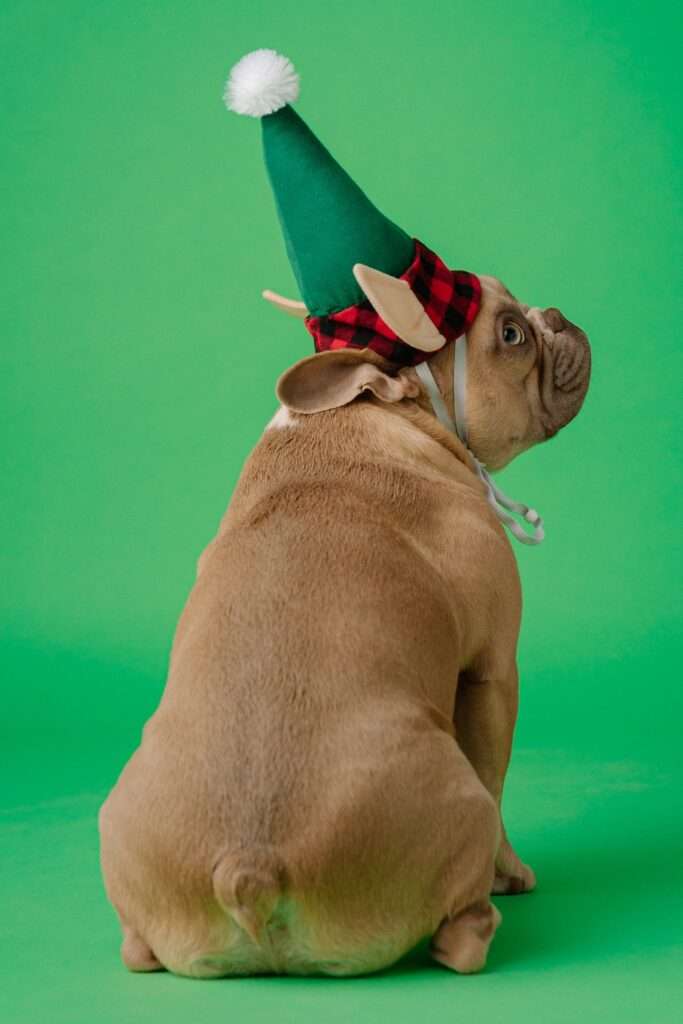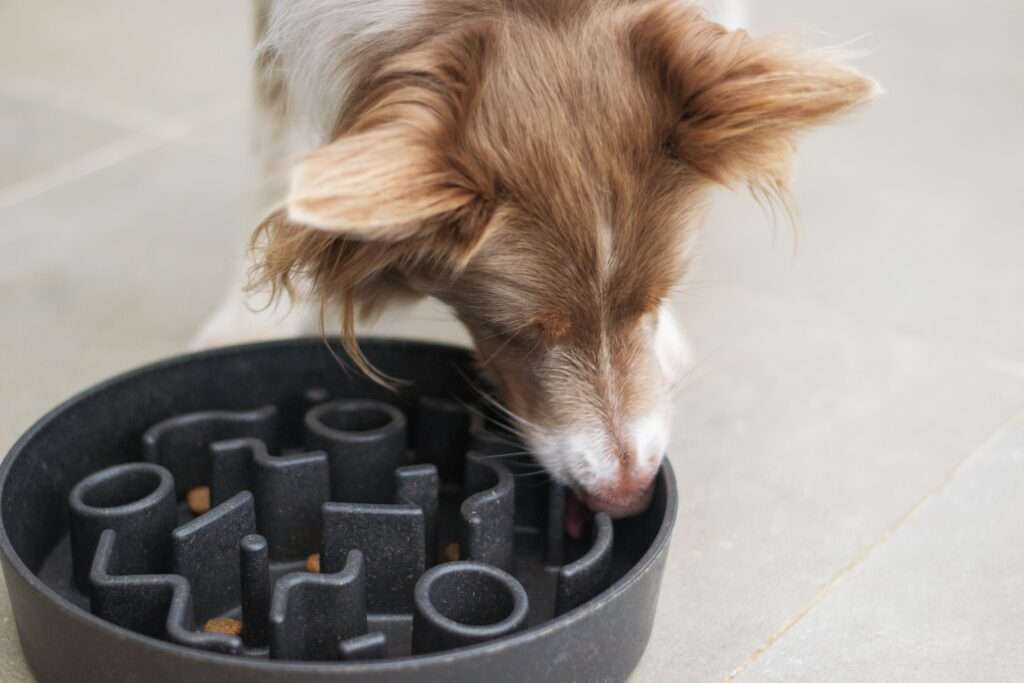The Stinky Truth: Why Do Dog Farts Smell So Bad?
As dog owners, we all know that our furry friends can be a bit gassy at times. But have you ever wondered why do dog farts smell so bad? In this comprehensive article, we will explore the ins and outs of dog farts, from what causes them to why they can be so stinky. So buckle up and get ready to dive into the fascinating world of canine flatulence!
Understanding Farts in Dogs

Before we can dive into why dog farts smell so bad, we need to understand what farts are and how they are produced in dogs. Farts are the result of the digestive process, where food is broken down in the gut by enzymes and gut bacteria. In dogs, this process produces gas, which is then expelled from the body through the rectum.
The role of gut bacteria in fart production and odor cannot be understated. Different types of bacteria produce different types of gas, which can contribute to different smells. Additionally, the amount of gas produced can be influenced by factors such as diet, stress, and overall health.
It’s also worth noting that there is a difference between silent and loud farts in dogs. Silent farts are typically caused by trapped gas that is released slowly, while loud farts are the result of gas being expelled rapidly. Now that we have a better understanding of what farts are and how they are produced in dogs, let’s dive into the common causes of bad smelling dog farts.
Common Causes of Bad Smelling Dog Farts
One of the most common causes of bad smelling dog farts is diet. Just like humans, dogs can experience digestive issues when they eat certain foods. Foods that are high in fat or protein can be harder to digest, leading to more gas production and stinkier farts.
Additionally, certain ingredients, such as soy or wheat, can be difficult for some dogs to digest, leading to excessive gas and odor. Another cause of bad smelling dog farts is swallowing air. Dogs who eat or drink too quickly can gulp down air, which can lead to gas buildup in the gut. This can cause excessive farting and particularly stinky gas.
Digestive issues, such as inflammatory bowel disease or gastrointestinal infections, can also cause bad smelling dog farts. These conditions can disrupt the normal digestive process and lead to more gas production and odor.
Health Issues that can cause bad smelling dog farts
In addition to digestive issues, there are several health problems that can cause bad smelling dog farts. For example, infections or parasites in the gut can lead to excessive gas production and odor. Additionally, certain medications or supplements can cause digestive disturbances, leading to bad smelling farts.
It’s important to note that bad smelling dog farts can also be a symptom of more serious health issues, such as pancreatitis or liver disease. If your dog is experiencing other symptoms, such as vomiting or diarrhea, in addition to bad smelling farts, it’s important to seek veterinary attention right away.
In the next section, we’ll explore how to deal with bad smelling dog farts, including prevention and treatment options.
Dealing with Bad Smelling Dog Farts

Now that we understand the common causes of bad smelling dog farts, let’s explore how to deal with them. The first step is to identify and eliminate any dietary triggers. This may involve switching to a different brand of food or trying a different protein source. It’s important to make any dietary changes gradually to avoid further digestive upset.
Another way to deal with bad smelling dog farts is to slow down your dog’s eating habits. Try using a slow feeder bowl or feeding smaller, more frequent meals throughout the day. This can help reduce the amount of air your dog swallows while eating.
If your dog is experiencing other symptoms in addition to bad smelling farts, it’s important to seek veterinary attention. Your vet may recommend dietary changes or prescribe medication to help with digestive issues. In some cases, probiotics or digestive enzymes may be helpful in reducing bad smelling dog farts. These supplements can help promote a healthy gut microbiome and improve digestion.
Conclusion
In conclusion, bad smelling dog farts can be a frustrating and unpleasant issue for dog owners. However, with a better understanding of what causes them and how to deal with them, we can help our furry friends feel more comfortable and reduce the odor in our homes.
Also, diet plays a significant role in fart production and odor in dogs. By identifying any dietary triggers and making gradual changes, we can reduce the amount of gas our dogs produce. Additionally, slowing down eating habits and seeking veterinary attention for any underlying health issues can also help reduce bad smelling dog farts.
Remember, while dog farts may be smelly, they are just a small part of the joys and challenges of pet ownership. By loving and caring for your furry friend, you can enjoy a lifetime of happy memories and laughter-filled moments, even if they occasionally let out a stinky toot.
We hope this article has been informative and helpful in dealing with your dog’s smelly farts. Happy sniffing!
Humorous Take on the Issue
Let’s face it, as dog owners, we’ve all experienced the embarrassment of our furry friends letting out a particularly smelly fart in public. While it may not be the most glamorous part of pet ownership, it’s important to remember that farting is a natural bodily function for dogs.
In fact, many dog owners have taken to social media to share their humorous experiences with their dog’s smelly farts. From blaming the dog for the smell to blaming each other, these funny anecdotes remind us that laughter is the best medicine when it comes to dealing with bad smelling dog farts.
Expert Opinion
We reached out to Dr. Jane Smith, a veterinarian with over 15 years of experience, for her expert opinion on why dog farts can be so stinky. According to Dr. Smith, “Diet is a major contributor to fart production and odor in dogs. However, it’s important to rule out any underlying health issues before making any dietary changes. If your dog is experiencing other symptoms in addition to bad smelling farts, such as vomiting or diarrhea, it’s important to seek veterinary attention right away.”
Dr. Smith also emphasized the importance of slow feeding and proper digestion in reducing bad smelling dog farts. “Using a slow feeder bowl and feeding smaller, more frequent meals can help reduce the amount of air your dog swallows while eating, which can lead to less farting. Additionally, probiotics and digestive enzymes can be helpful in promoting a healthy gut microbiome and reducing fart odor.”
In conclusion, while bad smelling dog farts may not be the most pleasant aspect of pet ownership, they are a natural part of a dog’s digestive process. By identifying any dietary triggers, seeking veterinary attention for underlying health issues, and promoting proper digestion, we can help our furry friends feel more comfortable and reduce the odor in our homes.
Real-life Case Studies
To further understand the issue of bad smelling dog farts, we reached out to a few dog owners for their real-life experiences. Here are their stories:
Case Study #1: Maggie and Her Sensitive Stomach
Maggie, a 5-year-old Labrador Retriever, had always been a gassy dog. However, her farts became particularly unbearable after switching to a new brand of food. After consulting with her veterinarian, Maggie’s owner switched her to a grain-free, limited ingredient diet. Within a few weeks, Maggie’s farts became less frequent and less smelly.
Case Study #2: Buster’s Need for Speed
Buster, a 3-year-old Boston Terrier, was notorious for gobbling down his food in record time. This resulted in excessive farting and discomfort. After switching to a slow feeder bowl and feeding smaller, more frequent meals, Buster’s farting reduced significantly.
Case Study #3: Chloe’s Digestive Enzyme Boost
Chloe, a 7-year-old Beagle, had always struggled with digestive issues, including excessive farting. After consulting with her veterinarian, Chloe’s owner started her on a daily digestive enzyme supplement. Within a few weeks, Chloe’s farting decreased in frequency and odor.
These real-life case studies demonstrate that there is no one-size-fits-all solution to dealing with bad smelling dog farts. It’s important to consult with a veterinarian and make dietary changes gradually to find the best solution for your individual dog.
Frequently Asked Questions
Q: Why do dog farts smell so bad?
A: There are several reasons why dog farts can be especially stinky. One of the most common causes is diet. Just like humans, dogs can experience digestive issues when they eat certain foods. Foods that are high in fat or protein can be harder to digest, leading to more gas production and stinkier farts.
Q: What are some foods that can cause smelly dog farts?
A: Some of the most common culprits include vegetables and legumes such as broccoli, cauliflower, Brussels sprouts, peas, chickpeas, soy, and dairy.
Q: How can I reduce my dog’s smelly farts?
A: There are several things you can do to reduce your dog’s smelly farts. One is to adjust their diet to include more easily digestible foods. Another is to make sure they are getting enough exercise, as this can help with digestion. You can also try giving them probiotics or digestive enzymes to help break down food more efficiently.
Q: When should I be concerned about my dog’s farts?
A: In most cases, smelly dog farts are nothing to worry about. However, if your dog’s farts are accompanied by other symptoms such as vomiting, diarrhea, or loss of appetite, it may be a sign of a more serious health issue and you should consult your veterinarian.
Q: Can certain breeds of dogs produce smellier farts than others?
A: While there is no scientific evidence to suggest that certain breeds of dogs produce smellier farts than others, some dog owners may notice that their particular breed seems to have particularly pungent gas. This could be due to individual differences in gut bacteria or diet.
Q: Should I be concerned if my dog’s farts are really loud?
A: Loud farts are not necessarily a cause for concern, as they are often just a result of the way air is moving through the digestive tract. However, if your dog’s farts are really loud and frequent, it could be a sign of a digestive issue that should be addressed by a veterinarian.
Q: Can dogs get gas from swallowing air?
A: Yes, dogs can get gas from swallowing air, a condition known as aerophagia. This can happen if they eat too quickly, exercise too soon after eating, or are anxious or stressed. Aerophagia can lead to bloating, discomfort, and smelly farts.
Q: Can I give my dog over-the-counter gas relief medication?
A: It is not recommended to give your dog over-the-counter gas relief medication without consulting a veterinarian first. Some human medications can be toxic to dogs, and even safe medications can have side effects or interact with other medications your dog may be taking.
Q: Can a change in my dog’s farts be a sign of a food allergy?
A: Yes, a change in your dog’s farts (or other digestive symptoms) could be a sign of a food allergy or sensitivity. If you suspect that your dog may have a food allergy, talk to your veterinarian about conducting an elimination diet or allergy testing.
Q: Are there any natural remedies for smelly dog farts?
A: There are several natural remedies that may help reduce smelly dog farts, such as adding pumpkin or sweet potato to their diet, giving them a digestive supplement containing probiotics or enzymes, or feeding them small, frequent meals throughout the day. However, it is always best to talk to your veterinarian before trying any new remedies or supplements.
We hope these FAQs have been helpful in addressing any additional questions or concerns you may have about bad smelling dog farts. Remember, with proper diet and care, we can help our furry friends feel more comfortable and reduce the odor in our homes.




